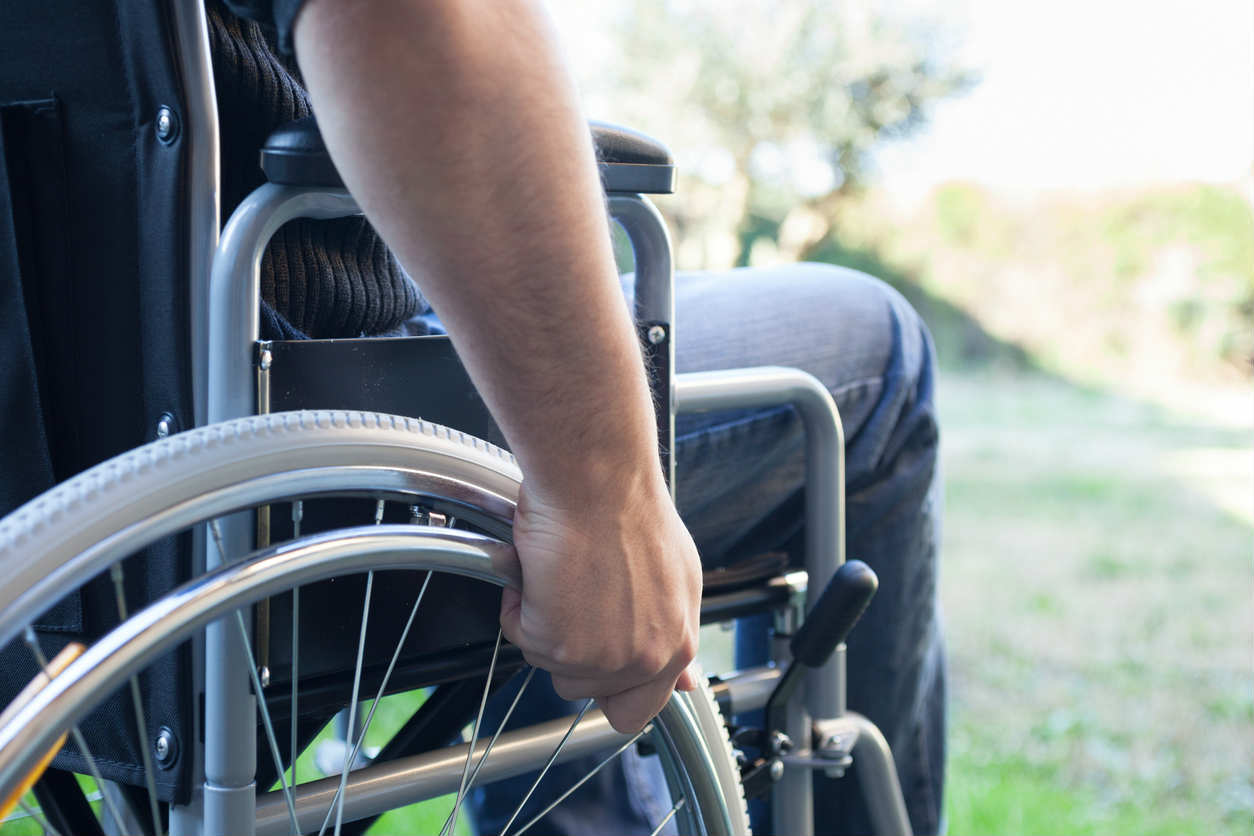Spinal cord injuries may cause immense pain and suffering, leaving you unable to enjoy life like you did before the injury. How do you receive compensation?
 Every year, many people suffer debilitating work-related injuries that render them permanently disabled. Some injured workers are not able to return to their normal life routine, including returning to work. One of the most debilitating of all work related injuries are spinal cord injuries. These injuries may occur as a result of a workplace accident or because of prolonged and repetitive use of certain parts of the body.
Every year, many people suffer debilitating work-related injuries that render them permanently disabled. Some injured workers are not able to return to their normal life routine, including returning to work. One of the most debilitating of all work related injuries are spinal cord injuries. These injuries may occur as a result of a workplace accident or because of prolonged and repetitive use of certain parts of the body.
At a workplace, spinal cord injuries are most often caused by a falling object or by slip and fall accidents. Construction workers are often at the risk of getting injured by heavy equipment or by an object falling on them. Workers employed at manufacturing units are also prone to spinal cord injuries.
What is a Spinal Cord Injury?
A spinal cord injury is an injury that causes dislocation or fracture of the vertebrae. Spinal cord injuries do not mean that the spinal cord is severed or injured; it can simply mean pressure or tear on the nerves that transfer signals from the brain to the other parts of the body. In case of a serious spinal cord injury, the cord is rendered incapable of carrying signals to any body part below the injury. It may cause partial or total paralysis.
Types of Spinal Cord Injuries
A spinal cord injury where the cord has been completely severed is termed as a complete spinal cord injury. It results in complete loss of sensation and motor function below the injured area. An example of complete spinal cord injury is quadriplegia, which means paralysis that starts at the neck and continues downwards. However, if the spinal cord has not been completely severed, it would be termed as an incomplete spinal cord injury. It causes temporary loss of sensation or motor function, but it can heal with proper medical treatment and rest.
Whether the worker has suffered a complete or incomplete spinal cord injury, the injured worker may have to suffer immense pain, and may not be able to enjoy life like he/she did before the injury.
Symptoms of Spinal Cord Injuries
According to Missouri workers’ compensation attorneys, some common symptoms of a spinal cord injury include :
- Loss of sensation
- Intense tingling sensation
- Pain
- Loss of motor function
- Inability to control bladder functions
- Difficulty coughing or even breathing
- Uncontrollable spasms
- Increased reflex functions
If someone experiences any of the aforementioned symptoms, he/she should immediately consult a doctor about the condition. Apart from these symptoms, other signs that can necessitate a doctor visit include numbness in the extremities, loss of consciousness, pressure in the head, neck, or back area, or impaired breathing.
Work Related Injuries
Work-Related Injuries
Work Related ACL Injury
Leg Amputation
Finger Amputation
Ankle Injury
Ankle Replacement
Arthroscopic Surgery
Work Related Arthritis
Accidental Asphyxiation
Work Related Asthma
Avulsion Injury
Back Injury at Work
Back Pain from Work
Lower Back Pain at Work
Chronic Back Pain
Head Injury Internal Bleeding
Internal Bleeding after Injury
Blood Related Illness
Broken Bones
Brain Injuries
Traumatic Brain Injury
Bursitis Work Related
Burn Injury at Work
Electric Burn
Chemical Burn
Calcaneus Fracture
Sudden Cardiac Arrest
Cardiovascular Disease
Carpal Tunnel Work Related
Cartilage Injury
Cervical Disc Replacement
Cervical Fusion
Chronic Illness
Work Related Chronic Pain
Work Related Concussion
Contagious Disease
Work Related COPD
Skin Corrosion
CRPS Disease
Crush Injuries
Cubital Tunnel Syndrome
Work Related Death
Degenerative Bone Disease
Degenerative Disc Disease Work Related
Reflex Sympathetic Dystrophy
Work Related Tennis Elbow
Elbow Injury
Epicondylitis at Work
Work Related Eye Injury
Fibromyalgia
Work Related Foot Injuries
Work Related Injuries to the Hand
Hand Arm Vibration Syndrome
Work Related Head Injury
Closed Head Injury
Open Head Injury
Work Related Hearing Loss
Heart Attack Work Related
Stroke at Work
Heat Stroke at Work
Intracerebral Hemorrhage
Hernia Work Related Injury
Work Related Herniated Disc
Hip Fracture
Hip Replacement
Hip Injuries
Intracranial Injury
Broken Jaw
Work Related Knee Injuries
Knee Fracture
Laceration
LCL Injury
Legionnaires Disease
Ligament Tear
Limb Loss
Lumbar Disc Replacement
Lumbar Fusion
Lumbar Spinal Fusion
MCL Tear
MCL Injury
Meniscus Tear
Work Related Mental Illness
Mesothelioma from Work
Work Related Muscle Problems
Work Related Neck Pain
Work Related Neck Injury
Nerve Damage from Work Related Injury
Neurological Disorders
Occupational Disease
Organ Damage
Pain and Suffering from Work Related Injury
Paralysis
Patella Fracture
Pelvic Fracture
Plantar Fascitis
Pre Existing Work Related Injury
Work Related PTSD
Radiation Sickness
Repetitive Stress Injury
Rhabdomyolysis
Rotator Cuff Tear
Rotator Cuff Surgery
Work Related Rotator Cuff Injury
Sciatica Work Related
Shift Work Disorder
Shoulder Fusion
Shoulder Impingement
Shoulder Injury
Work Related Shoulder Pain
Sick Building Syndrome
Skull Fracture
Spinal Cord Injury at Work
Spondylolysis
Sprain at Work
Work Related Repetitive Strain Injury
Work Related Stress
Stress Fracture
Subdural Hematoma
Work Related Tendonitis
Lost Tooth at Work
Trigger Finger Work Related
Vertebroplasty
Vision Impairment
Lost Vision at Work
Work Related Wrist Injuries
